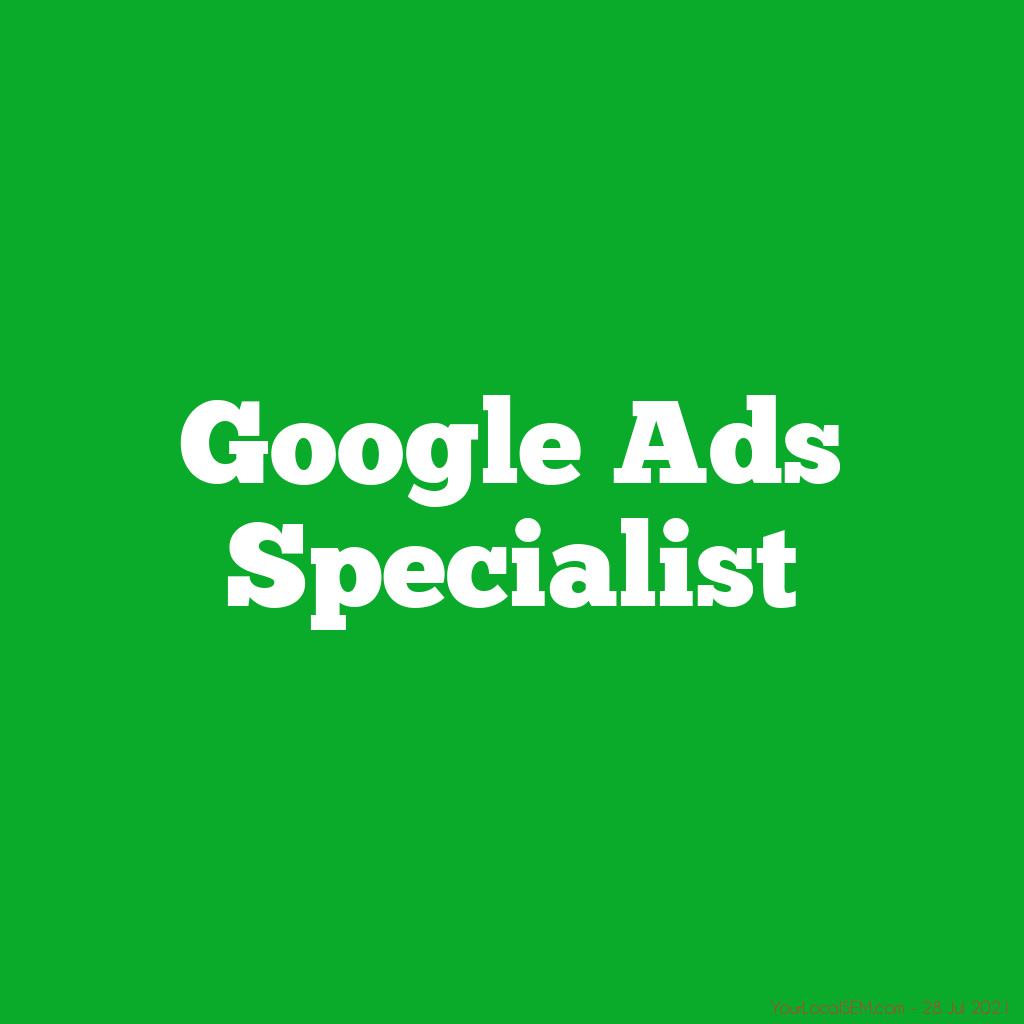Google Analytics NewsTaking Online Analytics to the Next Level, Part 2: Building Your Online Ecosystem |
|
|
Tag: #YourLocalSEO
Local Search Engine Marketing is King
Local Search Engine Marketing is King.
- 59 per cent of Internet users submit a query in search engines at least once per day.
- 76 per cent of users use search engines to find local business information.
- In 2011 Google disclosed that 40% of mobile search traffic is with local intent.
- In 2012 Google disclosed that 50% of mobile search traffic is with local intent.
- In 2012, according to one estimate, 43% of search results on Google carries local search intent. 25% with Bing / Yahoo has local Intent.
DoDa or DoNotDoDa of Good Customer Review
Dos and don’ts to consider when crafting a good customer review:
- Don’t be afraid to state the obvious.
- Stay on topic.
- Keep it succinct—try to stick to the overall experience and provide information that will be helpful to the next person that reads it.
- Don’t get too personal and don’t get overly nitpicky, especially if you’re a hard person to please anyway.
- Try to reveal what’s interesting or unique about a business.
- Again, be specific.
- Don’t just mention that it’s affordable—offer examples of what makes it economical.
- Was the overall service good or bad? What was the ambiance like? If the restaurant says it’s kid-friendly, is it really?
Google speeds up analytics reporting
Google speeds up analytics reporting Internet Marketing News Most site owners use Google Analytics several times a day, to chart progress, determine what they are getting right, and most importantly, find issues where they may be going off track. It has sometimes proved to be a bit of a chore to use Google
Report: Clothing, Restaurants 50 Percent Of Mobile Coupon Search
Moving an HTML Site to WordPress After Loss of Website Traffic « ISEdb.COM
How Valuable is Your Page? Ask Google!
How Does Google Determine the Value of A Page?
Short answer: By determining how long visitor stays on the page.
Technically speaking: SERP CTR (Search Engine Results Page Click-Through Rate)
What is SERP CTR? Short answer: It is the page that got viewed because the search engine rendered it to the user. Google is like a jealous overlord. If it brings you something, it wants you to enjoy it. If you do not, it remembers it and will make sure you do not get the same page again (or another person for the same search).
How can yo make users experience richer?
There are three ways to do this:
• Ensure that the rich snippet page description which appears on the SERPs accurately describes the actual content of the page.
• Make the content of the page available to the visitor as fast as possible. Check the page is fast loading and relevant content is situated “above the fold” (so visitors won’t need to scroll)
• Make content relevant for visitor, not the search engines.
Google AdWords Secrets & Mistakes to Avoid
Here are some Google AdWords secrets:
Mistake #1
Don’t throw in ‘everything but the kitchen sink.’ The siren-song temptation is to insert every keyword that could possibly apply to the business so that anyone who might ever be possibly interested will enter in one of the numerous keywords and discover it. Doesn’t a dry cleaner want people to know it is “eco friendly” and “uses green products” but is also “same day?” Oh yeah, and it’s a “discount dry cleaner” that happens to be “organic.” The problem is that by being everything to everybody, you appeal to no one. Instead, package a campaign with keywords that target a particular type of customers, and then send them to a page on your website that is suited to serve their needs.
Mistake #2
Don’t be in-your-face. People searching on Google don’t respond a lot to over-the-top advertisements. Nor do they respond to ads that are boring. What is most important is to use the Google AdWords keywords tool or Wordtracker to figure out the terms prospective customers are likely to use to find your business, and then include them in the ad headline. The headlines might look boring to many people, but they will be exactly what you’re customers are looking for. Then show them the benefit and payoff of your product or service right away, and you’re on your way to having an ad with a higher click-through-rate.
Mistake #3
High click-through isn’t always the best goal. There’s a lot of talk about the importance of click-through-rate. After all, you save money if it is higher. But what is the point if the large net you cast doesn’t reel in any customers? Better to write an ad that calls out to precisely the type of customer you are looking for. If you’re selling “sheepskin covers for Ford pickup trucks” that are “custom made,” make that your ad, even if the amount of people looking for that might be low. That way, you avoid click-throughs from people looking for something more general.
Mistake #4
Don’t let Google help you. I often hear from a business owner who was contacted by a Google representative offering to “optimize” his or her ad campaigns. In fact, the most popular Facebook post I’ve ever put out was when I said, “Have you ever allowed Google to ‘help’ you by editing your AdWords campaigns? How’d it turn out?” You can see the fury of responses that I got here. I have rarely heard from a client who did not report that this was an unmitigated disaster. Google AdWords is an amazing creation. But Google’s reps simply don’t know how to build a great Google AdWords campaign because they’ve never had their own money on the line.
Avoid these mistakes and learn through some trial and error, and you will be on your way to an Goolge AdWords campaign that produces results.
https://news.terra.com/common-google-adwords-mistakes-and-how-to-avoid-them,072d9641bb5a9310VgnVCM20000099cceb0aRCRD.html
Debate: Google’s search pages prioritize ads and services over results – TechSpot News
SEO – Right Stuff Back To Basics
With much of the SEO sphere focusing on link-building and (to a lesser extent) social media metrics, it can become easy to place all efforts on off-site SEO while neglecting on-page factors. However, even the most impressive link profile or social media presence does not tell search engines enough about what the linked-to site is about or how it translates into a good user experience. As such, it becomes imperative to put time and energy into what could easily be an overlooked yet easy-to-control aspect: on-site SEO.
Meta Data
A page’s title and description are absolutely critical in telling search engines and (equally important) users the topic of a page. As search engine results pages (SERPs) become cluttered with search results intermingled with local results, it becomes more important to have descriptive, well-written titles and descriptions with an adequate use of keywords and command modifiers. Use keywords as appropriate to convey the topic, but do not go overboard. Being spammy will not only be frowned upon by the Googles of the world, but it will also translate into a lower click-through rate by users. The general consensus is that using more than 70 characters for titles and 160 for descriptions is overkill, and it’s OK to use less. Always write with the user in mind.
Note in the photo above of a SERP for ‘Atlanta Real Estate’, which is one of the most competitive real estate markets in the U.S.., that each entry uses different keywords in their descriptions and titles. For example, www.PremierAtlantaRealEstate.com includes information about schools and neighborhoods, which will appeal to a different kind of buyer than that of the entries above it, which put more emphasis on ‘luxury’.
Site/URL Structure
Ideally, every page on a typical website should be within three clicks of the home page. Clearly this is not applicable for large sites such as Wikipedia, Amazon, etc., but for the average local real estate site this should be a clear-cut objective. As such, keep it in mind when structuring your site into folders; the goal is to have a logical, well-thought-out and easily understood structure.
For example: domain/city/property type/landing page could be feasible for most agents, depending on their target audience and niche. Of course, there could be variations such as domain/property type/city/landing page, but the objective is the same: Have a clear, easy-to-understand structure from both a user’s and search engine’s perspective.
Remember, structure is (and will continue to be) important, as it helps users understand relevancy and helps search engines in placing relative importance of any given page.
Interlinking
Oftentimes underused, how pages are interlinked from one to another can create a better user experience and keep authority/trust flowing freely throughout the site. Just as in link-building, use different variations of keywords to link to a page, which is clearly much easier to control on-page than off-page.
For example, linking to a Boston condos page can be linked to with varying anchor texts such as “Boston condos for sale,” “Condos for sale in Boston,” “Beantown condos,” etc., and can effectively increase rankings on long-tail searches.
The example above, taken from www.LuxurySarasotaRealEstate.com, illustrates interlinking well-done. It has contextual links to similar pages that a user may find interesting, links on the main navigation to key pages throughout the site for quick browsing, and anchored links within the same page for easy navigation – useful for particularly long pages, where a user may not be able to locate the information they are looking for based on the sheer content quantity.
Use HTML-based text to write links, as links in Java, Flash or other plug-ins have a good chance of not being reached by the search engines’ spiders. Furthermore, avoid unnecessary linking; after all, having too many links not only dilutes the “juice” passed on to each link but in many cases crawl spiders will not follow all links on a page to its destination.
Although articles about link-building and social media strategies continue to dominate the SEO landscape, it is imperative to put time on an aspect over which a website master has immediate and direct control: on-site SEO!
https://next.inman.com/2012/09/on-site-seo-going-back-to-basics/



